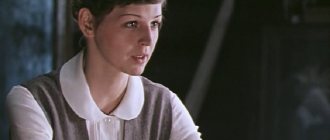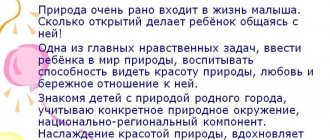Selecting a Point of View
First you need to weigh all the arguments for and against. Personally experienced events, situations that happened to other people, as well as plots of famous works will help you think.
Arguments for the truth
Parents begin early to teach their children how bad it is to lie. And there can be quite a lot of arguments confirming these words, for example:
- a person who has maintained the reputation that he never lies, even if the truth comes at a high price, enjoys the trust and respect of others;
- Once you start lying, it’s difficult to stop, you have to come up with details to back up your words and it’s more and more difficult to put an end to the lie;
- those around you deserve to know the true state of things, and not be in error;
- deceit is characteristic of people who have many fears;
- the ability to tell the truth helps a person become bolder;
- to speak the truth is to be free;
- there is always a danger that a person will be caught in a lie;
- Honesty has always been valued as a good quality.
You can take arguments from well-known works. Among them is “Childhood” by L. N. Tolstoy, in which the main character suffers greatly from remorse for his deception and cannot sleep because of it. Or the children's story by V. Dragunsky, which is eloquently called “The Secret Becomes Revealed” and tells about a boy who lied to his mother, because of which they both suffered, and even an innocent passerby.
Another non-obvious example is the suffering of Rodion Raskolnikov from F. M. Dostoevsky’s novel “Crime and Punishment.” His conscience tormented him terribly and he could not calmly live with what he had done. Only the truth brought him relief, even though it entailed severe punishment.
It would seem that there are so many arguments about why it is necessary to tell the truth that the situation can be interpreted quite unambiguously. However, this is not quite true. Of course, a malicious lie is always bad, but sometimes it is told with good intentions.
Arguments for white lies
We must not forget about the arguments that confirm that sometimes it is better to tell a white lie or keep silent about some fact. Examples of such situations could be the following:
- a person was entrusted with someone else's secret;
- doctors and relatives do not tell the patient that he is terminally ill, because he is not ready to accept it;
- a person prepares a pleasant surprise for a loved one and is forced to hide it for some time;
- parents support their children’s belief in miracles, for example, they talk about the existence of Santa Claus;
- adults don't tell their elderly parents about small problems so as not to upset them.
Examples of white lies are also presented in the literature. M. Sholokhov portrayed this problem especially vividly in “The Fate of Man.” The main character of the story, Andrei Sokolov, returned from the front and met the boy Vanya, who was left an orphan due to the war, but did not yet know about it. The man could not tell the child the truth and introduced himself as his father. And who can condemn him for this lie? After all, he actually saved the boy.
So it turns out that the choice of one point of view or another strongly depends on the circumstances. But sometimes a person wants to help his neighbor by hiding the truth, but in reality this still causes harm. A striking example of this is M. Gorky’s play “At the Lower Depths”. It pits two characters against each other, and takes place in a dirty flophouse. The wanderer Luke encourages people in conditions of hopelessness, his lies have a comforting power, and they begin to believe that not all is lost. The second hero, Satin, on the contrary, does not approve of lies and believes that only the truth can really help a person.
The ending of the work is sad. One day the righteous elder leaves, and the people, who were encouraged, drown even deeper in their suffering. Neither Luka nor Satin helped them, so perhaps the right choice is somewhere in the middle.
9.3. Why should you always tell the truth? (according to the text by M.M. Zoshchenko)
Moral choice is a life situation in which a person finds himself when he is faced with several paths, among which he must choose one. A choice is moral when, of the possible paths, one is the path of morality, and the other is the path of immorality. As a rule, the path of immorality brings benefits to the person himself, but it brings negative consequences to all other people. A person has to choose: to do the wrong thing, but achieve his own goals, or to do the right thing, but not get what he wants. When a person deceives someone, he, wanting to do better for himself, commits an immoral act, not yet realizing that a lie can only bring negative emotions to a person. Therefore, it is important that a person realizes that when he is faced with a moral choice, he must understand the consequences of all possible options.
The problem of moral choice is raised in the text by M.M. Zoshchenko. Having received a unit for an unlearned poem and having heard from his sister Lelya that for one unit he was unlikely to receive a camera from his father (sentences 3, 8), the narrator at first did not even think of lying: he left his diary in the park completely by accident. And this fact first upset the narrator, and then made him happy (sentence 16). The author shows that the narrator, who is faced with a moral choice - to tell his father about a bad grade and not get a camera, or not to tell his father about a bad grade and get a camera - chooses the second option. And if the boy does not lose the first diary on purpose, then the narrator hides the second diary on the school closet just as deliberately as he covers up the one in the third diary so that dad doesn’t find out about it. The author shows that the boy chooses an immoral path to get the desired camera. It is unknown whether the boy would have told the truth to his father if he had not found out the truth himself. However, feelings of shame for the committed act helped the narrator take the true path: he promised himself never to deceive again.
The problem raised in the text is reflected in many literary works. In the novel M.A. Bulgakov’s “The Master and Margarita” reveals the image of the honest and morally pure Yeshua Ha-Nozri
.
When the hero finds himself interrogated by the procurator of Judea, he faces a moral choice: lie to Pontius Pilate and say that he never said anything about power, or tell the procurator the truth. Pontius Pilate
, who was not indifferent to Yeshua Ha-Nozri, tried to hint to him to lie, not admitting that he had said the words of which he is accused. However, Yeshua Ha-Nozri did not even think about deceiving other people, because for him, deceiving others is deceiving himself. Yeshua Ha-Nozri did not want to lie, so he honestly admitted what he had said to Judas of Kiriath, and even once again expressed all his thoughts about power, but this time to Pontius Pilate. M.A. Bulgakov, showing that Yeshua Ha-Nozri chose the moral path by telling the truth, expressed the idea that a person who tells the truth, regardless of external circumstances, deserves respect.
Thus, a person faced with a moral choice must think about the consequences of possible paths and must choose the right path, even if it is much harder than the path of immorality.
With full text by M.M. Zoshchenko can be found at the link
.
Option 20 - essays 9.1. and 9.3.:
- 9.1. “First-person narration provides the reader with intimacy with the main character, it focuses on describing the character’s inner life” - C.S. Likhachev
- 9.2. “And I promised myself to tell only the truth. And I really always do this, although sometimes it is very difficult, but my heart is cheerful and calm” (according to the text by M.M. Zoshchenko)
Writing an essay
After the student decides for himself what is better: truth or lie, the essay will be easy to write. It is better to do this according to the following plan:
- Propose a thesis. It will also be good to decipher the concepts of truth and lies in your own words.
- Give arguments.
- To make a conclusion.
Each part of the text needs to be given special attention.
Proposing a thesis
The paragraph should not be very voluminous, 1-3 paragraphs are enough, but they need to include an introduction and a statement of the relevance of the problem presented. Sometimes this part becomes the most difficult for students because the first lines of the text have a serious responsibility to attract the reader's attention. They are the ones who sometimes influence the overall impression of the work.
The introduction should be concise and clear, without semantic or stylistic errors. Simple sentences, not overloaded with punctuation marks and figures of speech, are best suited for this.
The thesis should be put forward clearly, but at the same time evoke a desire to read what will happen next. You can speak about the relevance quite briefly, simply explaining your opinion about how useful the topic raised by the author seems.
Bringing evidence
There shouldn’t be any difficulties with this point, because the arguments were thought out at the stage of adopting a specific point of view. Nevertheless, they need to be correctly presented so that they become obvious not only to the author of the work, but also to its readers.
A good essay requires at least two pieces of evidence. You can get to them through a logical transition from the thesis. For example, if the plot of a book is given, you can write in general about the authors who raised the topic in question in their works. After presenting specific arguments, you can move on to the final part.
Formulating a conclusion
Before moving to conclusions, you need to re-read what has been written and make sure that the point of view is fully proven. Then you can summarize your thoughts , while trying not to duplicate what has already been written and not to go off topic.
At the end, you can make a call to the reader, for example: “Let’s learn together to respect honest people and try to be like them,” or express the hope that the arguments presented in the text will help someone understand the author’s point of view. You can also end your essay beautifully with a meaningful quote.
What will win is the mind or the heart?
To summarize, we can highlight the following positions on whether it is always necessary to tell the truth.
1. Everyone has their own truth, so before you say anything, you need to think carefully, since most often, even after long disputes, everyone remains alone with their truth.
2. Truth comes from the heart, from the soul. Lies and omissions come from the mind. The choice is up to the person how to live, guided by the mind or the dictates of the heart.
3. Not everyone can afford to tell the truth. Many are afraid of negative consequences, afraid for their own skin. Truth is the lot of the rich and successful, who stand confidently on their feet and have little dependence on who will behave after their honesty, or those who have nothing to lose.
4. You should always tell the truth. Any lie is something that requires additional effort from a person to hide any information. You can't fool yourself. A person feels bound by lies, loses energy, cannot work and live fully. As an example, supporters of this opinion suggest imagining a situation where you need to hold a ball underwater. This ball is the truth rushing out. A person, in order to hide the truth from others, is forced to make certain efforts, but he could spend it on something more useful. To tell the truth is to live calmly, with a clear conscience, not to be afraid that at some stage in life (often at the most inopportune moment) the truth will surface.
5. It all depends on the specific situation - sometimes you can tell a white lie. Shouldn't you tell your child that he is terminally ill?
6. Truth and lies are all relative. Why bother about this?
Monologue statement
At school, the student’s speech skills may also be needed if the task involves making a report in class. You can prepare for it and successfully complete it according to the following scheme:
- formulate the main idea (what is better: always tell the truth or sometimes resort to silence);
- make sure that the topic in the text is fully covered;
- confirm your statements;
- provide relevant quotations;
- maintain a logical sequence in the presentation of thoughts;
- remember literacy.
Listeners can ask questions and express disagreement with the speaker's arguments. And when defending your opinion, you need to remember that everyone has the right to choose for themselves whether to bring only the truth to the world or sometimes dilute it with concealment and even distortion of facts. However, we need to stop judging those who have different points of view and learn to respect them.
The main thing is to remember that when choosing the truth, you need to be able not to confuse it with tactlessness. After all, sometimes those around you do not need to know someone else’s opinion, and it can be not only unpleasant, but also inappropriate.
When people hide the truth
Naturally, the most popular reason is the desire to deceive for one’s own benefit or for the sake of preserving a relationship. But there is a second form of lying - the so-called white lie. When to use it:
- to encourage a person in a difficult life situation, to motivate him to fight;
- to keep calm, not to make someone nervous;
- so as not to offend a friend;
- to avoid scandal;
- so as not to traumatize the psyche of the interlocutor;
- so as not to upset or disappoint someone;
- for the sake of safety;
- to set the mood.
White lies very closely border on personal egoism or personal fears. Often this boundary is blurred. Perhaps the most harmless and justified lies are fictitious encouraging stories like “you won’t believe it, this happened to me too.” It’s difficult to judge everything else unambiguously.
Interesting fact: many experiments in psychology began with deception of participants. They were told that they would study one thing, but in fact the psychologists were studying a different phenomenon. Otherwise, the participants would not be able to be natural or would refuse to participate, which would derail the experiment and slow down the progress of science.
Topic “Why you need to tell the truth”: arguments for an essay
Arguments for essay:
- L.N. In his autobiographical trilogy, Tolstoy describes the intense suffering of the boy Nikolenka, who is embarrassed by deceptions and reproaches himself for them. Even at night his sleep is disturbed because he did not confess to the priest, concealing his deceptions.
- Victor Dragunsky in Deniskin's Stories shows the experiences, shame and repentance of a woman and her son, because of whose deception a man suffered.
- “At the Depths” by Maxim Gorky is the most striking example of the fact that a white lie does not always help, make it easier or save. Luka was convinced that his lie was justified, but Satin remained unshaken and fought for the truth to the last.
You can also use one or more statements and aphorisms about truth and lies in your essay:
- Only that person enjoys respect and trust who always tells the truth.
- “It’s not easy to decide to tell the truth, but it’s easier to live with it than with lies.”
- “A lie always gives rise to new lies, even more sophisticated and terrible.”
- “Every person deserves to know the truth and not be deceived.”
- “Lying is for cowards.”
- “Speaking the truth is not easy, it takes courage.”
- “Truth is the god of a free man.”
- “You won’t be able to lie all the time; the truth will always do its job.”
- “The naked truth is more beautiful than a disguised lie.”
- “The only good thing is what’s honest.” (Cicero)
- “Live the truth, that’s the best sermon.” (Miguel Cervantes de Saavedra)
How to write an essay on the topic “Why you need to tell the truth”






